Humza Yousaf's business reboot
- Published
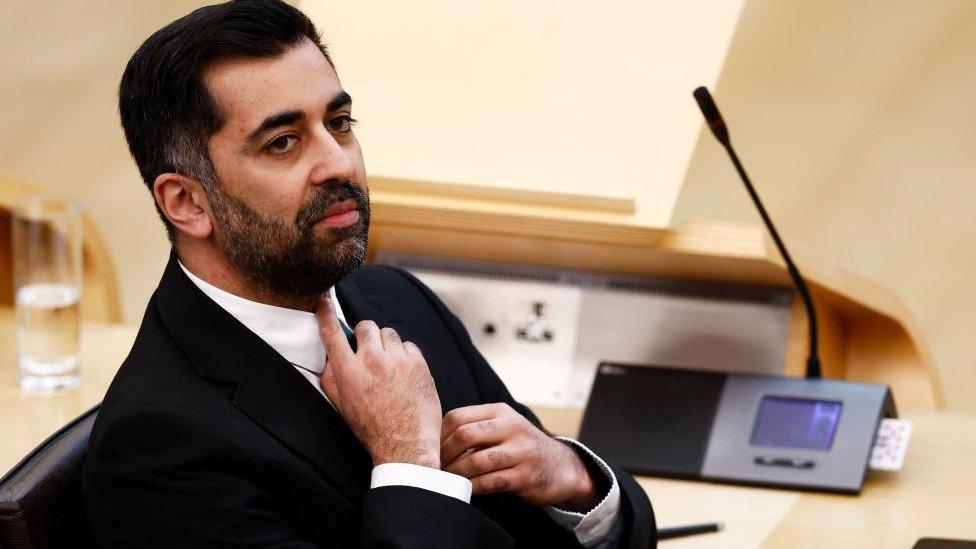
Beyond his party's finance crisis, the new first minister wants to reset relations with groups that have become increasingly disconnected from St Andrew's House.
His first big policy speech and programme for government had some significant shifts in his approach to business and the economy.
He wants to use the tax system to redistribute not only income but wealth, but acknowledged that he also needs a bigger tax base to meet his "wellbeing" ambitions.
Humza Yousaf wants to get on the front foot. His party's excruciating difficulties, as the focus of a police investigation, don't help. Nor have a number of negatives he has had to address.
But by talking warmly of a new relationship with councils, and measures to ease housing difficulties in rural and island communities, he must be hoping that he can earn at least a hearing from those quarters which have been most critical.
His big statement of intent to Holyrood was most significant for its attempt to reset the Scottish government's relationship with business.
That had not been going well under Nicola Sturgeon. It was under her leadership that the party embarked on legislation for a deposit return scheme on bottles, and followed a hard-line public health approach to shutting down alcohol advertising.
The problems went further than that. Business lobbies felt they were at the end of the queue outside the First Minister's door, while her attention was focussed on public services and inequalities. She would be closely involved in her health secretary's portfolio, but leave the economy to others.
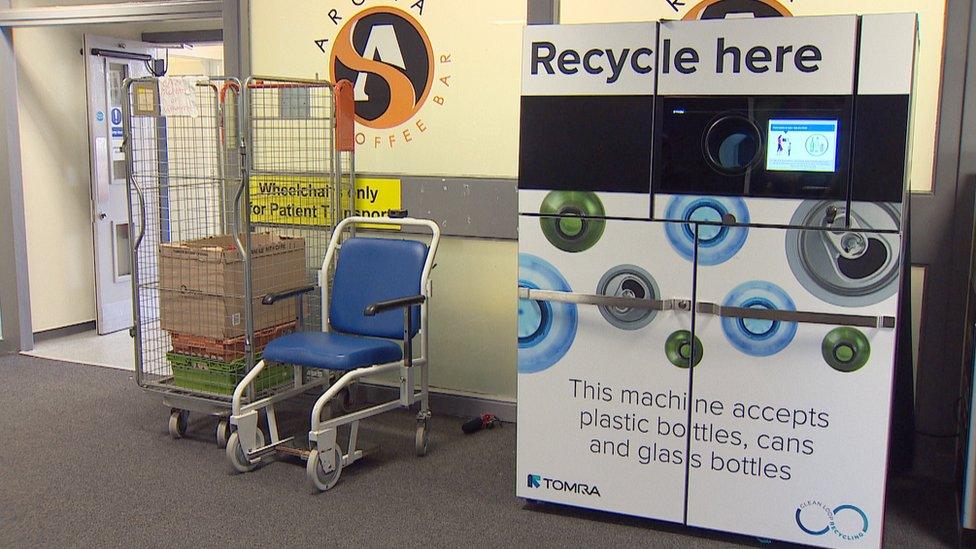
Reverse vending machines for the deposit return scheme are already being trialled across Scotland.
Humza Yousaf and his rivals for the leadership had heard lots about that during their campaign. This week was his opportunity to shut down the clamour for a reset, by offering just that.
On the specific policies that have been causing most difficulty, he offered significant concessions.
The bottle deposit scheme has been postponed by eight months, with the opportunity to tackle business concerns about its practical implications and costs (though those costs are already falling to firms that won't see an income stream until next March).
The proposed ban on alcohol advertising, which grew out of public health concerns about Scotland's relationship with booze, looks like it's being fully re-booted.
'With a purpose'
There's more. The clamour for a review of business rates is being answered, at least to open discussions about how they could be reformed.
And there was a pledge not to do to workers in the oil and gas sector what Margaret Thatcher's policies did to heavy industry in the 1980s. That acknowledges a perception that the transition away from oil and gas to renewable energy - putting a high barrier in the way of new hydrocarbon development - has taken a callous approach to the effects on the many who work in it, particularly in the North East economy.
The Scottish government does not control the licences for such development. But watch to see if the rhetoric around the oil and gas sector changes, and how that is squared with Scottish Green MSPs.
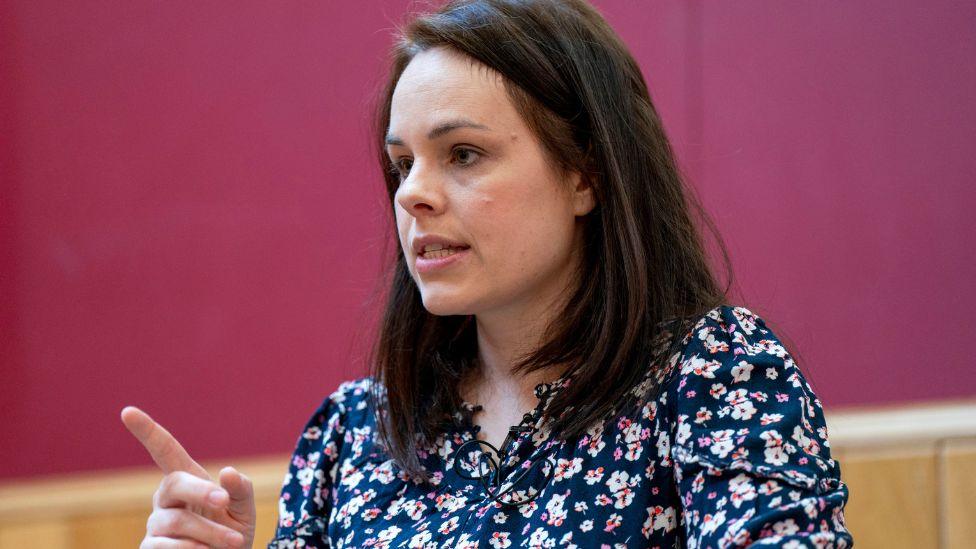
Former finance secretary Kate Forbes was Mr Yousaf's SNP leadership rival
Humza Yousaf acknowledged the need for growth in the economy if he is to have the tax base from which he can get the funds to deliver on his ambitions for public services and tackling inequalities.
That goes towards the position on the economy taken by his rival for the leadership, Kate Forbes. The new First Minister talks of the need for balance there, on growth 'with a purpose'.
That balance is with a determination to make the tax system more progressive than the rest of the UK - a target which has, according to Scottish government rhetoric, already been achieved.
Spreading wealth
The new first minister clearly sees more room for using tax to redistribute from high earners and from the wealthy. He told the Scottish Trades Union Congress on Monday that he's "interested" in the report it published late last year, and wants to get moving on the issues raised in it.
These included a range of tax increases and changes that would help fund public services and union pay demands.
The STUC report suggested a drop in the threshold for higher rate tax from £43,663 to £40,000, and putting up the the higher rate introduced this month, of 42 pence in the pound, to 43 pence.
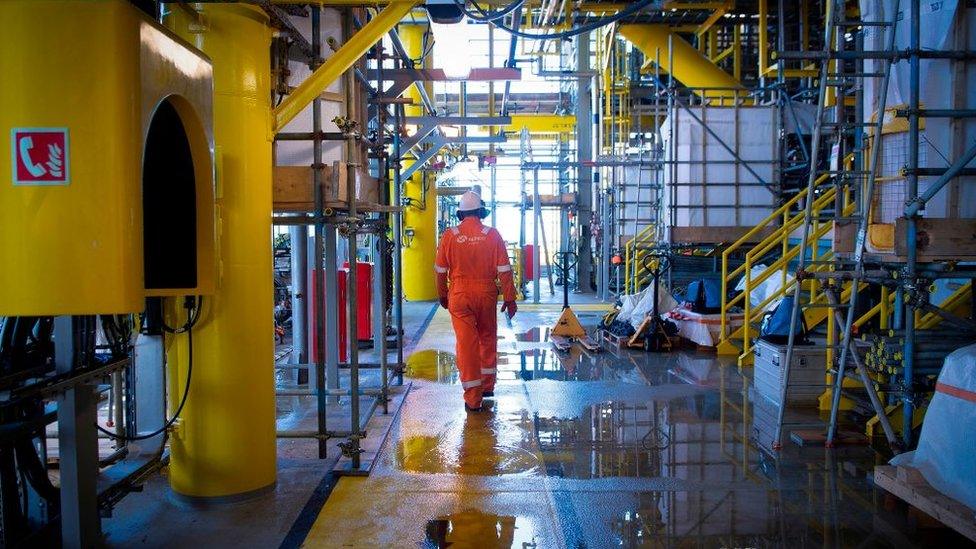
The Scottish government has pledged a just transition for workers in the oil and gas sector
The STUC report went further, with talk of a wealth tax, requiring those above a given threshold to find the cash for a 1% levy each year. Under devolved powers, that doesn't look possible. So the proxy for wealth, for now, has to be property, using council tax and business rates.
A start to that has been made with consultations that could lead to a doubling of council tax on second homes, more tax on empty homes and at least a question mark over the business rates exemption for most holiday lets.
A further policy that's fired up critics, and may also require a response, is the economic concern in coastal Scotland from plans to introduce Highly Protected Marine Areas, where commercial activity will be banned or tightly constrained. That has some SNP MSPs very concerned, including Kate Forbes.
'New Deal'
Reading further into the published programme for government, a 'rural delivery plan' is one of the priorities for Deputy First Minister Shona Robison.
She is also taking charge of a ten-year programme for all public bodies to reform to "achieve effective and person-centred, fiscally sustainable public services".
This is not new, but the emphasis is interesting - on making the finances add up in the longer run, and in using tight resources in a more targeted way.
Could that turn into a shift in the way in which the SNP in government has sought to provide services for free to everyone, including those who could afford to pay towards them?
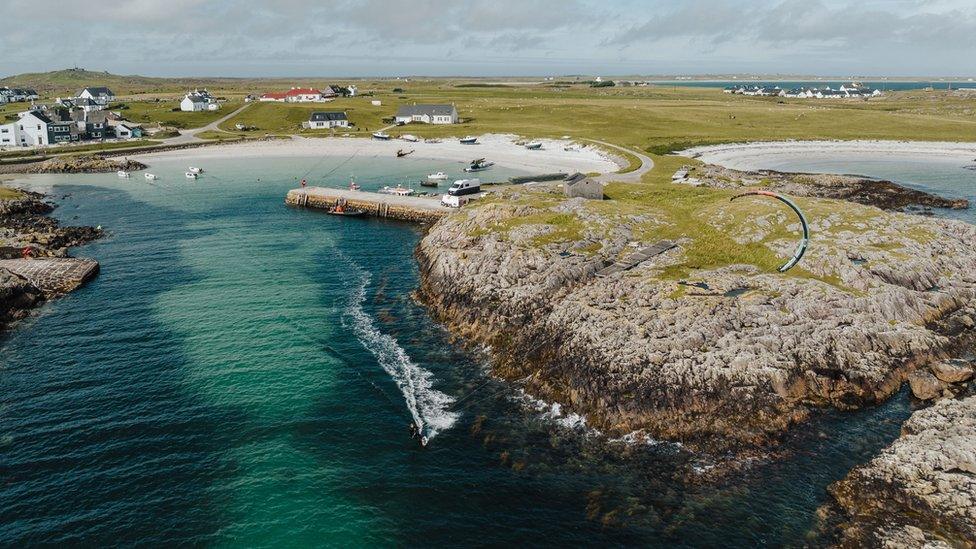
The community in Tiree is one that has opposed Highly Protected Marine Areas in its waters
The policy revamp set out by Neil Gray, cabinet secretary for 'the wellbeing economy, fair work and energy', starts from continuity with the National Strategy for Economic Transformation, which was published by Kate Forbes when she was in the cabinet.
That comes with "a sharp focus on those policies and actions with the greatest potential to grow and change Scotland's economy, expand the tax base to fund excellent public services and make people's lives better".
Neil Gray continues: "We will transform the delivery of business, enterprise, and innovation support". Nicola Sturgeon's team said something similar when she became First Minister and it didn't go well.
And the new cabinet secretary says: "This will require a new approach to the Government's relationship with business. At the request of the First Minister, I will engage widely with business leaders to develop and agree a 'New Deal' with the private sector, for how we will work with business to deliver a growing economy that increases wellbeing".
So if this administration can get out from under the rubble of its current crisis, let's see how that's 'new deal' develops.